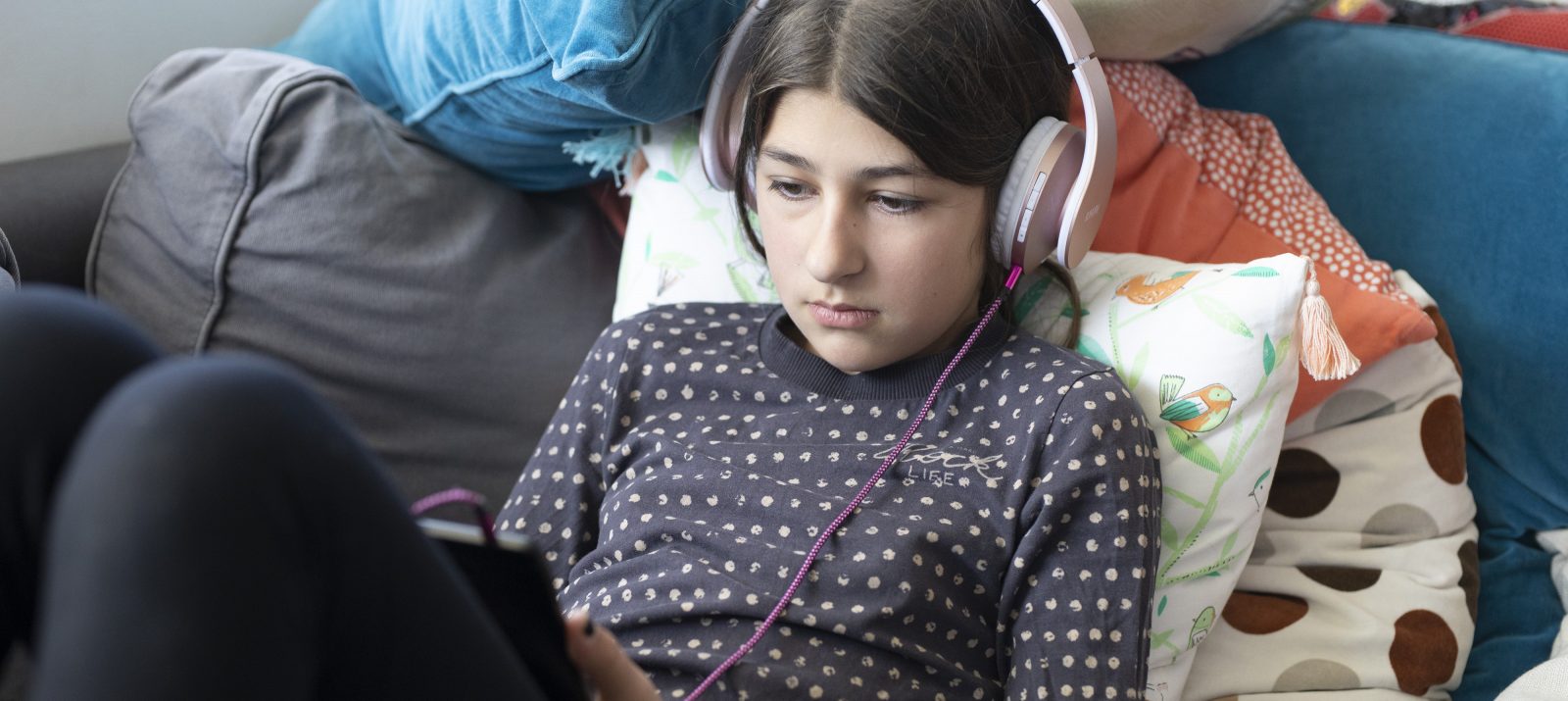
Many children and young people have a close relationship with their smartphone: it’s always within reach – when you’re not holding it in your hand, it’s in your pants pocket or lying next to your bed at night. But why is the smartphone so important, especially for children and young people?
Young people in particular spend a lot of time with their smartphones, and many children now take them for granted as well. No wonder – because the smartphone is important for almost all areas of children’s and young people’s lives: Messenger and social media are used to communicate with friends and family and to share experiences, class chats are used to discuss schoolwork, and games can be played in free time.
Many young people don’t feel complete without their smartphone. A decisive reason for this is that they are then no longer in contact with their friends. The exchange with peers is very important in this phase of life. About WhatsApp, Instagram and Co. they keep in touch virtually around the clock. You can directly learn about planned activities in the clique. It makes them feel like they belong. Through constant exchanges with their best friend, they experience an intense friendship. Likes from friends for posted pictures raise self-esteem and are confirmation.
At the same time, constant accessibility and the fear of missing out can also lead to digital stress. The absence of the hoped-for confirmation via likes and messages can be unsettling and create emotional stress.
Importance of the smartphone in times of social distancing
When personal contacts are restricted, schools are closed and hardly any leisure activities are possible outside the home – as in times of a pandemic – the daily media usage time increases among children and young people. This has also been shown in studies (such as that of the DAK). Social contacts can be maintained via the smartphone despite social distancing – this is probably just as true for you as it is for your child. If you’re worried because your child is currently spending a lot more time on their cell phone than normal, remember that they want to stay connected with their friends through their smartphone. Don’t condemn it, but talk about the challenges of contact restrictions. Trips to nature, exercise with the family or game night can be ways to still have enjoyable experiences during this time. Special times require special rules! This can also apply to media usage time.
Many families also use the smartphone to communicate with each other. This is often the reason why parents buy their child’s first smartphone: The change to secondary school, which is often associated with a longer journey to school, arouses worries and fears in many parents. As a rule, the child can always be reached via the smartphone.
In addition, people like to exchange information in family chats – even with grandma, uncle and cousin.
But permanent smartphone use often leads to conflicts in the family. Common rules on media use in the family can help to ensure that no one feels disturbed by the smartphone of the older daughter or the father who is on the phone a lot.
The smartphone is also a part of school. Cell phone bans in some schools do limit use, but in many schoolyards, students can be seen typing away on their devices, surreptitiously or not. Some teachers actively incorporate the smartphone into the classroom. Students use it for research, interactively solve quizzes, or create their own media products with it. At the latest when it comes to homework, people use their cell phones to search for information and ask for help from friends or in class chats.
The smartphone also stores personal memories and little treasures: Funny voice messages can be listened to again and again, photos remind us of beautiful moments, and favorite music is always there to lift our spirits. The smartphone also serves as a status symbol: It is important which model you have, how good the camera is and with a special cell phone case you show your individuality. Similar to music and fashion tastes, the smartphone is now a means of self-expression and differentiation.
The smartphone also stands for independence and freedom. Communication with friends, access to music and the photo collection and much more takes place on your own device, protected from your parental gaze. Give your child the space he or she needs, starting around puberty. If you have already accompanied your child in media use in the years before so that he or she could develop media competence, you should be able to do so with a good feeling. Nevertheless, it’s good to talk to your child regularly about the dangers lurking online.
If you feel that your child spends too much time on his cell phone, you should talk to him about it, but show understanding for his needs. Because these are probably not so different from yours.